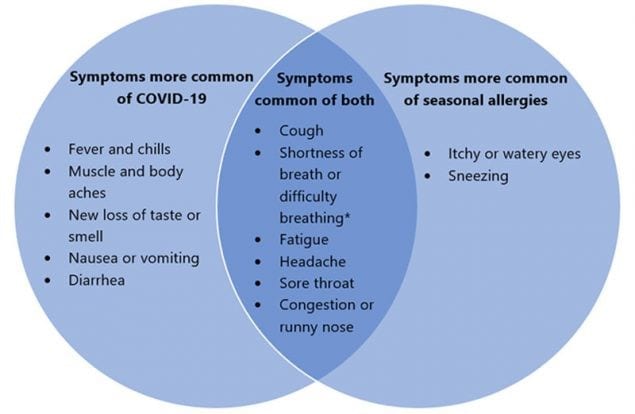Did you wake up this morning sneezing or maybe you have a new cough? How about a runny nose? Due to the increase in COVID-19 cases, you might be wondering if you might have COVID-19.
Here are the symptoms, according to the CDC: Symptoms may appear 2-14 days after exposure to the virus. People with these symptoms may have COVID-19:
- Fever or chills
- Cough
- Shortness of breath or difficulty breathing
- Fatigue
- Muscle or body aches
- Headache
- New loss of taste or smell
- Sore throat
- Congestion or runny nose
- Nausea or vomiting
- Diarrhea
The CDC says these are emergency warning signs for COVID-19: If someone is showing any of these signs, seek emergency medical care immediately:
- Trouble breathing
- Persistent pain or pressure in the chest
- New confusion
- Inability to wake or stay awake
- Bluish lips or face
The CDC shared this chart to help decipher between COVID-19 symptoms and seasonal allergies.
According to the CDC, people who have COVID-19 don’t commonly have itchy or watery eyes and sneezing.


